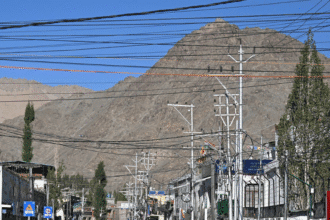Protests in Angola, ignited by a sharp upward push in petrol prices, have spiralled into violent clashes, resulting in at least 22 deaths, including a police officer, and leaving masses injured. The country, specifically the capital, Luanda, has seen a surge in protests, beginning with taxi drivers opposing the gasoline hike but quickly escalating into nationwide civil unrest. The government’s attempts to suppress the protests were met with vast disruption because the country grapples with escalating social and economic pressures.
- How Have the Protests Affected Angola’s Capital, Luanda?
- What Is the Government’s Response to the Crisis?
- Why Did the Petrol Price Increase Trigger Such a Severe Response?
- What Is the International Community’s Response to the Situation?
- How Are Political Opponents Responding to the Unrest?
- Final Thoughts: The Escalating Impact of Petrol Price Hikes in Angola
How Have the Protests Affected Angola’s Capital, Luanda?
The protests started earlier this week, triggered by the government’s decision to hike gasoline prices by way of more than 33%, a part of a much broader flow to cast off gas subsidies. What started as a strike with the aid of taxi drivers soon spread throughout the US, with demonstrators voicing frustration over rising living prices. In Luanda, emergency services are reportedly overwhelmed, with many hospitals not able to deal with the influx of injured protesters.
Doctors from public hospitals showed that whilst a few casualties were accounted for, they fear the actual death toll can be lots higher than the official estimates. Over the past forty-eight hours, gunfire sporadically echoed across the city, in addition to intensifying the weather of fear. Here is the link to our article on Oil spill disaster
What Is the Government’s Response to the Crisis?
Interior Minister Manuel Homem addressed the nation, pointing out that acts of vandalism and public disorder have been huge, in particular within the provinces of Luanda, Huambo, Benguela, and Huíla. While the authorities are confident the public that the usual safety in Angola remains strong, the government has imposed a heavy presence on the streets of the capital. More than 1,200 people were arrested, and property damage is significant, with supermarkets, stores, and even banks looted.
The presidency has attributed the violence no longer most effective to the protests but additionally to “infiltrators with criminal intentions.” These acts of destruction, it’s miles argued, have turned what was at the beginning a call for honest gasoline prices into an instantaneous challenge to public order.
Why Did the Petrol Price Increase Trigger Such a Severe Response?
The gas rate hike, which went into effect in July, is part of a broader government plan to segment out subsidies in the oil-wealthy state. Despite this, President João Lourenço brushed off the protests, suggesting they have been politically influenced as opposed to pushed by way of monetary grievances. He argued that the protesters used the gas fees as a pretext to destabilize his government.
The decision to elevate diesel prices has had a cascading impact on the Angolan economic system. As taxi fares soar, expenses for staple items have additionally risen, as truckers and different providers pass on the higher gas prices to clients. This, in turn, has brought about similar public frustration. Here is the link to our article on the Oil sanctions breaches.
What Is the International Community’s Response to the Situation?
The unrest has led to flight cancellations, as airways, such as Lufthansa, have suspended services because of safety issues. Several nations have issued warnings to their citizens approximately the developing violence in Luanda, advising them to remain careful and keep away from non-crucial movement within the capital.
Foreign consulates and embassies in Angola were monitoring the scenario intently, urging their nationals to stay knowledgeable. In particular, the USA Embassy has called for heightened vigilance, particularly in light of the continued protection crisis.
How Are Political Opponents Responding to the Unrest?
The Patriotic United Front (FPU), a coalition of competition organisations, has expressed harmony with those tormented by Angola’s excessive financial crisis. They argue that the protests are a result of bad governance, corruption, and policies disconnected from the wishes of human beings. However, the FPU has also condemned the violence and destruction carried out by means of the protesters, calling for peaceful demonstrations.
The political opposition’s statements underscore the developing dissatisfaction with the government’s handling of the financial system, mainly in light of the petrol charge hike and its ripple effects on the cost of residing.
Final Thoughts: The Escalating Impact of Petrol Price Hikes in Angola
The ongoing protests over fuel rate hikes are a stark reminder of the delicate stability governments have to keep when enforcing economic reforms. While petrol price increases are regularly important for long-term economic stability, the social unrest that accompanies such selections will have far-reaching consequences. The violence and disruptions visible across Angola are an instantaneous reflection of the country’s deepening monetary disaster, and the authorities’s reaction will possibly play a pivotal function in shaping the destiny of the political landscape of the country.








